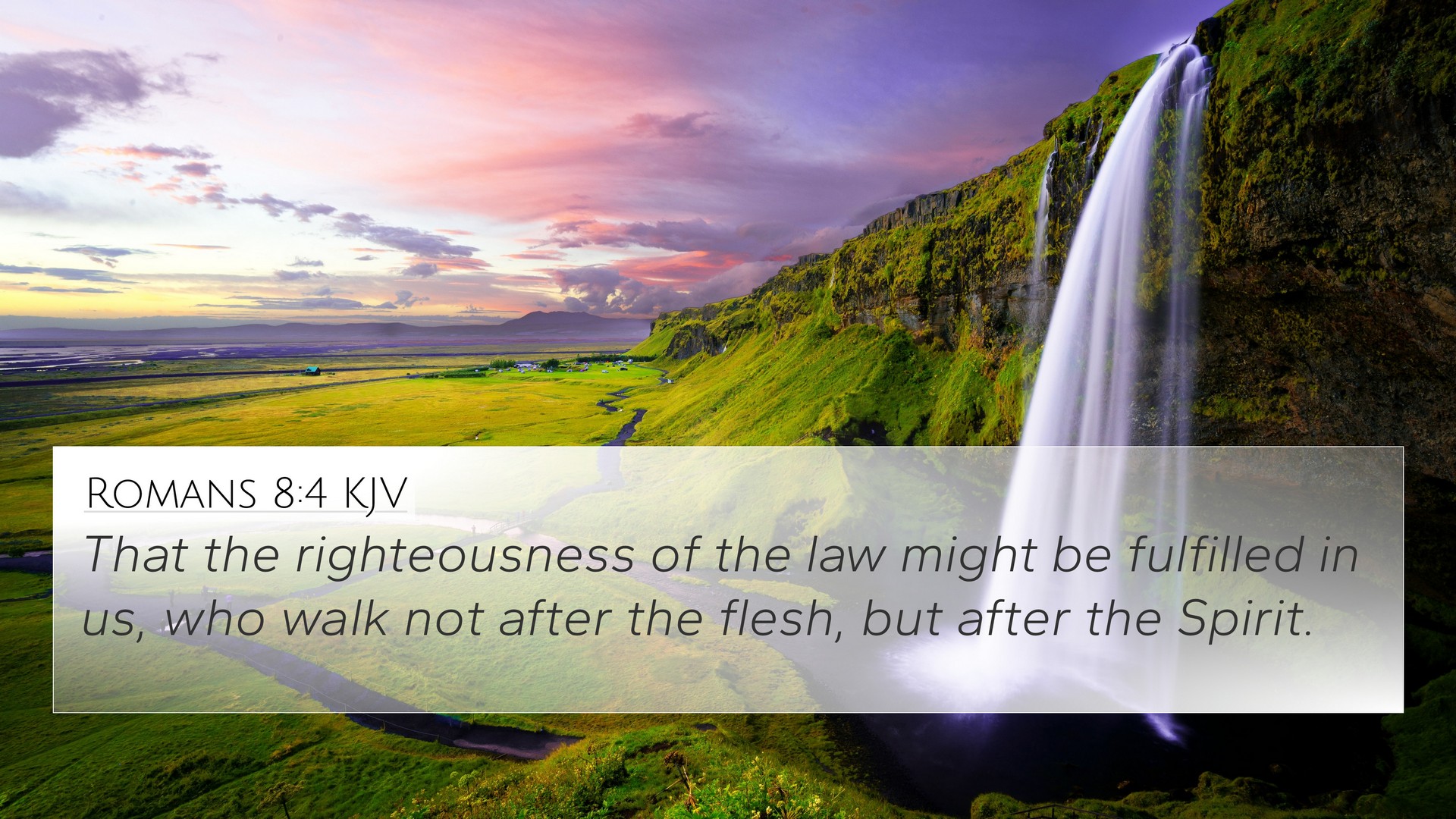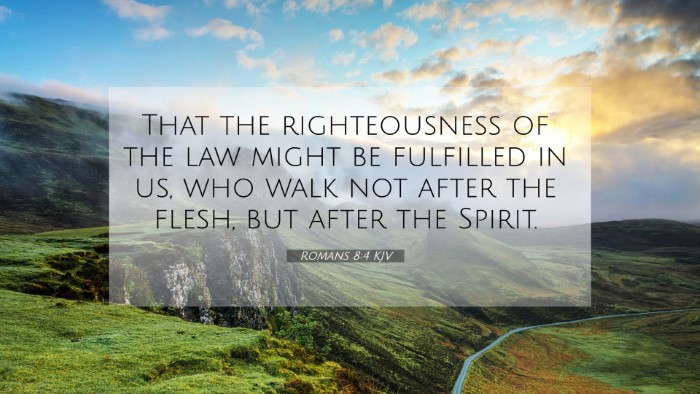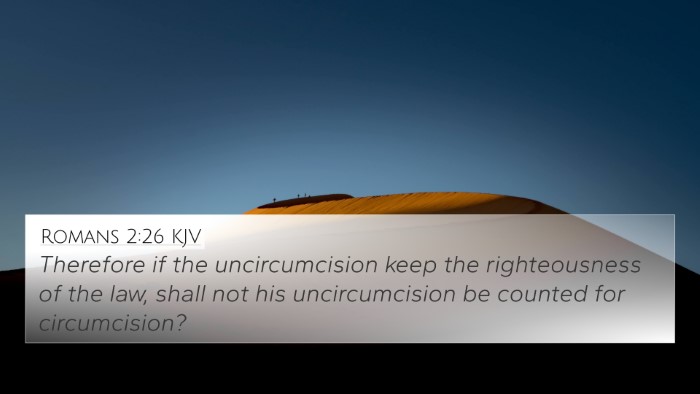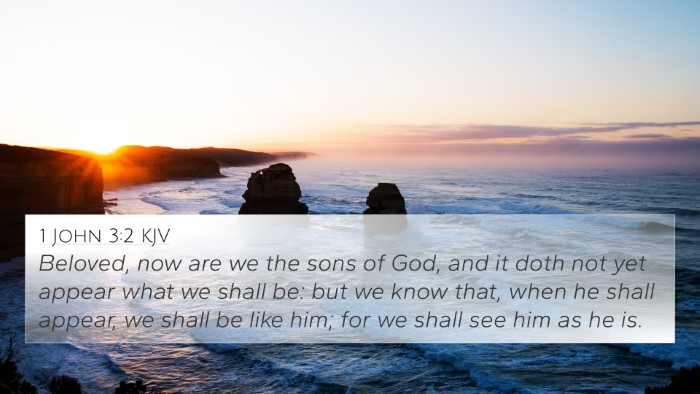Summary of Romans 8:4
Romans 8:4 states: "That the righteousness of the law might be fulfilled in us, who walk not after the flesh, but after the Spirit." This verse underscores a critical aspect of Christian living—aligning one's life with the teachings of Christ and the guiding influence of the Holy Spirit.
Meaning and Interpretation
Matthew Henry emphasizes that the fulfillment of the law's righteousness in believers is through a life led by the Spirit. The law, which initially establishes standards of righteousness, finds its true expression in those who are empowered by the Holy Spirit to live according to God’s will.
Albert Barnes explains that although the law requires righteousness, it cannot provide the power to attain it. Therefore, it is through the Spirit that believers are able to achieve the fulfillment of the law's requirements. Walking “after the Spirit” signifies living under the influence and guidance of the Holy Spirit, which leads to a transformed life.
Adam Clarke elaborates that this transformation signifies a departure from living according to worldly desires (the flesh) and embracing a lifestyle that seeks to please God. This walk in the Spirit indicates not just a passive state but an active pursuit of holiness and righteousness.
Connections to Other Bible Verses
- Galatians 5:16: “This I say then, Walk in the Spirit, and ye shall not fulfill the lust of the flesh.”
- 2 Corinthians 5:17: “Therefore if any man be in Christ, he is a new creature: old things are passed away; behold, all things are become new.”
- Romans 6:14: “For sin shall not have dominion over you: for ye are not under the law, but under grace.”
- Romans 13:8: “Owe no man any thing, but to love one another: for he that loveth another hath fulfilled the law.”
- Ephesians 2:10: “For we are his workmanship, created in Christ Jesus unto good works, which God hath before ordained that we should walk in them.”
- Philippians 3:9: “And be found in him, not having mine own righteousness, which is of the law, but that which is through the faith of Christ, the righteousness which is of God by faith.”
- 1 John 2:6: “He that saith he abideth in him ought himself also so to walk, even as he walked.”
Thematic Insights
This verse shares profound thematic connections with the overarching narrative of both the Old and New Testaments, specifically regarding the purpose of the law and the transformative power of grace through the Spirit. The historic struggle between law and grace continues to resonate through the teachings found within the Epistles and across the biblical canon.
Engaging with Cross-References
When studying this verse, one might explore tools and resources for Bible cross-referencing to understand the broader implications of living by the Spirit compared to the law. Utilizing a Bible concordance or a Bible cross-reference guide can enhance one’s understanding of the interconnected nature of God’s word.
Conclusion
Romans 8:4 serves as a pivotal reminder that living a life of righteousness is not achievable through personal effort alone, but requires the active participation of the Holy Spirit in the believer's life. This theme resonates deeply with many other Bible verses that relate to each other, creating a rich tapestry of scriptural understanding that encourages followers to seek a Spirit-led existence.











